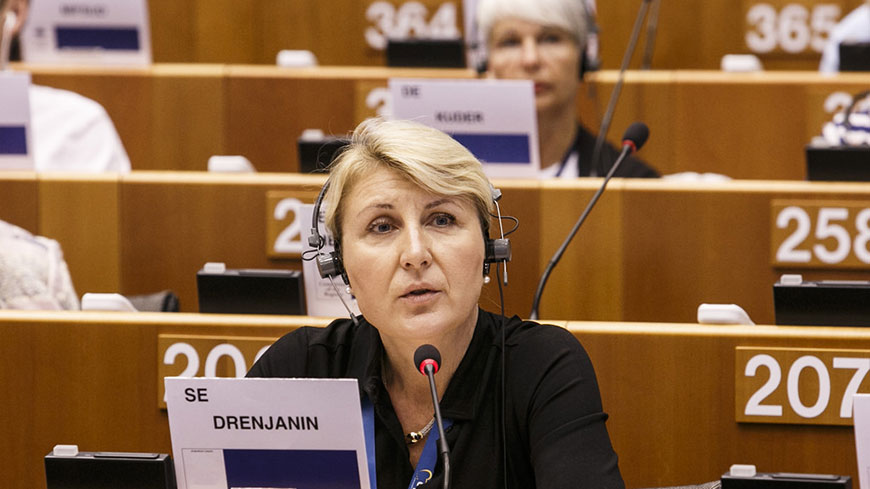“Sexism is widespread and must be tackled at every level of governance,” said Jelena DRENJANIN (EPP/CEC, Sweden), spokesperson for the Congress for Gender Equality, on the occasion of the adoption of a Recommendation on preventing and combating sexism by the Council of Europe’s Committee of Ministers. “This text contains the first internationally agreed definition of sexism. It also helps identifying the different manifestations of sexist behaviors and highlights their impact” she added.
This Recommendation calls on member States to take measures to prevent and combat sexism and its manifestation, to monitor progress in the implementation of this Recommendation, and to make it easily accessible to the relevant authorities.
“The context is favorable for taking action. We are witnessing a general awareness of the extent of sexual harassment. The liberation of women’s speech has brought to light sexism in politics," she said.
"The Congress must start working on these issues: local and regional authorities should be encouraged to set an example in their own communication and to take measures to combat sexism in their own political institutions and administration."




